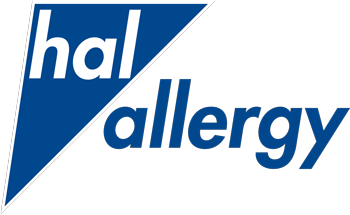Clinical Trial Program
HAL Allergy engages in a clinical trial program for global relevant allergens
Striving to fill the gap of significantly needed therapeutics for respiratory and food allergies, HAL Allergy engages into a targeted development process clinical studies in human volunteers answer questions on the validity and productivity of the developed therapeutics’ safety and efficiency. Clinical trials are split into several phases with separate research goals in each phase and proceed over many years.
Phases of clinical trials
- Pre-clinical trials are conducted before entering in human trials, including in-vivo testing.
- Phase I trials assess the safety of a new medicine. This initial phase of testing usually includes a small number of allergic patients focusing on potential side effects of the new treatment at different dose levels.
- Phase II trials test the safety and efficacy of a new medicine. In this phase the optimal dose of the medicine is determined by testing different dosages. This second phase involves up to several hundred patients in a blinded study. This set-up allows a careful and objective investigation of the safety and effectiveness of the new medicine.
- Phase III trials are confirmatory trials whereby the safety and efficacy of the new medicine is investigated in larger populations of several hundred to several thousand patients using the selected dose. This large-scale testing yields a more thorough understanding of the effectiveness of the new medicine and its benefit risk ratio. Once Phase III is successfully completed a dossier is submitted to apply for registration and marketing authorization of the new medicine.


